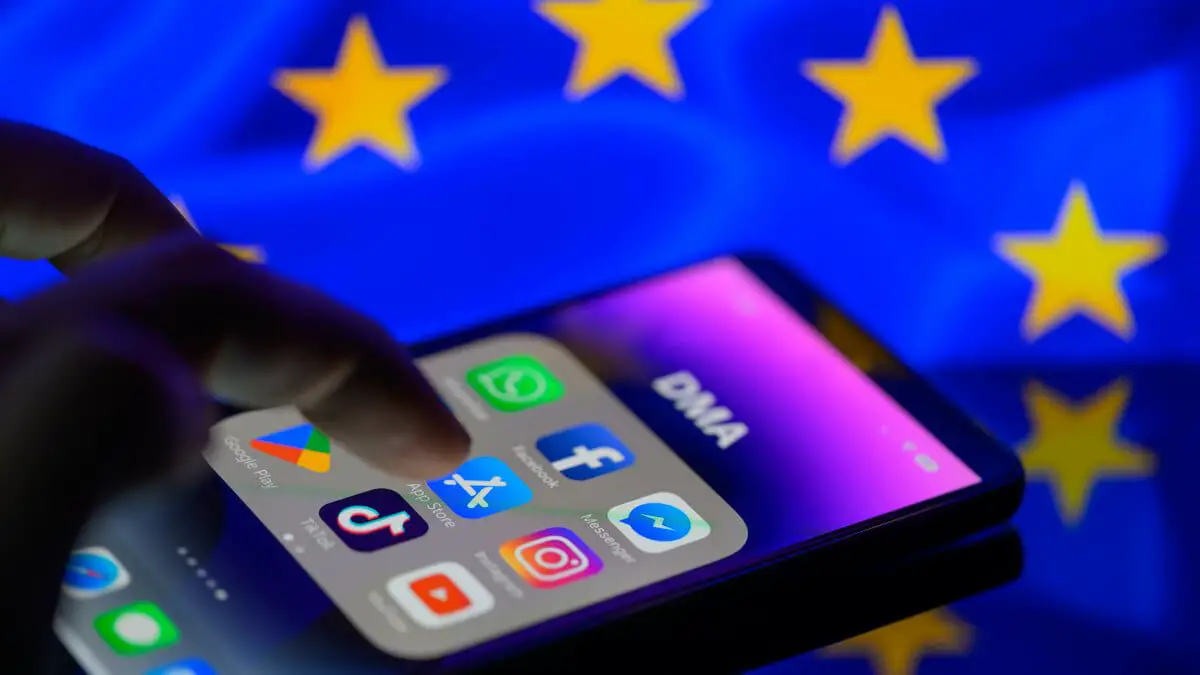5 new iOS features you don’t get because you’re outside the EU
You’ve probably heard of the Digital Markets Act (DMA). These new European regulations came into effect last week and forced large tech companies, known as “gatekeepers,” to open up their core platforms to third parties in order to keep the tech space competitive. Many companies, like Meta and Microsoft, are affected by these new laws. […]

You’ve probably heard of the Digital Markets Act (DMA). These new European regulations came into effect last week and forced large tech companies, known as “gatekeepers,” to open up their core platforms to third parties in order to keep the tech space competitive.
Many companies, like Meta and Microsoft, are affected by these new laws. But perhaps no company has been forced to make changes as big as Apple. The iPhone maker has had to significantly change its long-standing policies for many of its core products like the App Store. Apple’s DMA-inspired changes have also been widely criticized by their tech industry peers.
Apples “malicious compliance” has been in the spotlight in recent weeks – and this could seriously minimize the positive impact of the DMA for iOS users in the EU.
So let’s take a look at the five main changes Apple was forced to make to iOS, thanks to DMA. Some of these will certainly make people in the United States and elsewhere around the world envious that their countries have not also adopted a similar set of antitrust laws.
Third-party app stores
Apple no longer having a de facto monopoly on how apps are distributed on iOS is arguably the most significant change to the company’s mobile ecosystem. Thanks to the DMA, Apple was forced to authorize “alternative markets” to distribute applications to iPhone and iPad.
This means that developers can for the first time create apps that do not comply with Apple’s App Store content and development policies. So, users can expect different types of apps that might have previously been banned on the App Store.
In addition to “alternative marketplaces”, developers can choose to create their own standalone app store that only distributes its own apps.
Developers are also no longer required to participate in the App Store’s revenue-sharing model for transactions, such as in-app purchases, which involve paying a percentage of their sales to Apple. This means developers can potentially pass on savings to consumers.
Fortnite returns
Speaking of no longer having to share revenue with Apple, Fortnitethe very popular online battle royale game, is to come back to iOS, thanks to DMA.
game developer Epic Games has announced that it will bring Fortnite on iPhone as soon as Apple announced the “alternative markets” option earlier this year.
In 2020, Apple booted Fortnite from the App Store after Epic Games attempted to circumvent the iPhone maker’s revenue sharing rules. As this went against App Store policy, Apple removed Fortnite from its official marketplace, effectively banning it on iOS as a whole.
But, with the DMA in place in the EU, Epic Games can take advantage of alternative distribution methods to bring Fortnite back to iPhone for users in that region. (Apple recently tried to block Epic Games from its developer program, which would have halted the company’s plans to create an alternative market and potentially halted Fortnite’s return to iOS. However, the DMA also forced Apple to reverse this decision.)
Download directly from the developers
If Epic Games wanted to allow iOS users to download Fortnite directly from its website, it can do that now too.
Apple’s latest addition to its revised EU iOS policies has added a new distribution option for developers.
If an app creator wants to allow users to download their app directly from their website they can. No third-party App Store or “alternative marketplace” required – just direct distribution with no middlemen.
(However, we should note that developers who wish to distribute via this method must be approved by Apple after meeting certain requirements.)
Change default apps
Tired of Safari open instead of Google Chrome when you click on a link on your iPhone? Sick of Apple Cards always gives you indications by default?
Well, if you’re in the EU, you won’t have to deal with these default Apple apps on iOS for long. Through DMA, Apple said it will roll out new settings options that will allow users to choose the default app they want to use for a web browser or map app. That’s a pretty big change. Previously, users were forced to use Apple’s own apps unless they manually opened a third-party app by choice.
Additionally, Apple will also have to allow EU users to delete the Safari app entirely, an action currently not allowed on iOS.
Interoperability and data portability
Interoperability and data portability are technically two separate changes, but they both mean the same thing to users: more ownership over your data and how it is used.
As part of its DMA Compliance Report, Apple said it will begin accepting developer interoperability requests, potentially allowing more third-party apps to access iOS features. This can give developers access to APIs that were previously inaccessible to them, which would allow these third parties to create new applications using these features and their relevant data.
A recent example of this is that of Apple FinanceKit API, which gives developers access to Apple Card, Apple Cash, and Savings with Apple for the first time. Some developers have already integrated this new feature into their product, which automatically imports users’ purchases and transactions into their financial planning apps.
If these changes aren’t enough to convince EU-based iPhone users, they should look forward to Apple’s next one. data portability plans, courtesy of the DMA. Apple says it is working on “more user-friendly solutions” for iPhone users who want to move to Android or other mobile devices. Being able to easily move your data wherever you want is a huge win for consumers.














